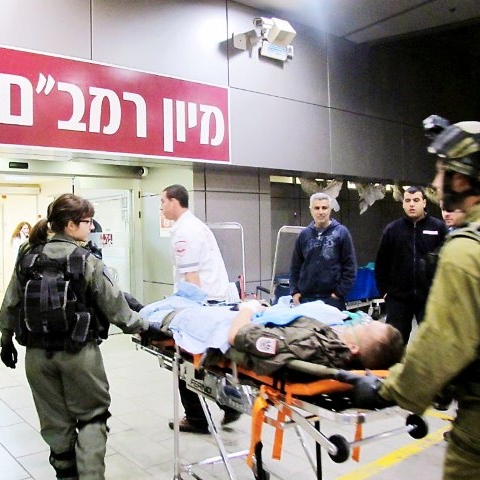
News

Healthcare builds Israeli-Arab bridges
SUZANNE BELLING
It seeks to describe the unique nature of the Israeli healthcare system, where Jews and Arabs work in full co-operation, equally and with positive relations.
“Such a reality is exceptional in the Israeli landscape. Accordingly, we aim to draw inspiration from this system and to consider how this model of successful co-existence might be replicated in other fields and workplaces,” says Rosner.
She points out that the laws and regulations alone cannot bring “genuine and profound change”, but “must be accompanied by initiatives and actions in the social and public domain to change the current mindset and collective consciousness.
“At the end of the day, there is no alternative to personal acquaintance, which knocks down walls and removes prejudices.”
The report says Arabs in the healthcare system have a sense of belonging and an affinity to their workplace.
“They also feel an absence of discrimination and obstacles – and believe that they have a genuine chance to advance alongside their Jewish colleagues.”
The nature of their work – saving lives – is paramount and overshadows cultural differences. It encourages a sense of partnership between Jew and Arabs, and the outside political tensions become irrelevant.
“The intensive period of study, followed by long hours in hospitals… forces the Arab and Jewish workers to get to know each other more deeply than in other sectors… Barriers fall and relationships of respect and professional appreciation develop, accompanied in most cases by personal friendships.”
Dr Khaled Azam, a radiology specialist at Hadassah Hospital, Mount Scopus, believes in professional values and comments: “Why doesn’t it work elsewhere? Because medicine is the treatment of all people – before they are a Jew or an Arab, a Muslim or a Christian.
“If I find someone who is injured or feels sick, I don’t need to find out whether they are Jewish or Arab, I just need to treat them. That’s my job.
“Maybe because of this perspective, we can successfully make peace between Jews and Arabs in the hospital. We treat people, we don’t treat an Arab or a Jew. They are a patient; it doesn’t matter who.”
However, he says, it only works in medicine. “Outside of Hadassah isn’t good.”
Prof Raphael (Raphi) Walden, deputy director of the Sheba Hospital in Tel Aviv, speaks of the “common enemy” that unites ranks: “I may be a bit naïve, but I’d like to believe that there is a special kind of solidarity that is related to the world of medicine, because we are all on the same side, facing a common enemy – death and disease.
“This enemy is so clear and distinct that it unites us. Ultimately, when you care for the human body, there are no distinctions.”
Dr Suheir Assadi, director of nephrology at the Rambam Medical Centre in Haifa remarks: “The essence of our work is the great value of life. We talk about life, not about death… Other problems are dwarfed by the things we treat.”
Nurse Siham Shibli, head nurse in the catheterisation rooms at Jerusalem’s Hadassah Ein Kerem, says: “Getting to know each other from the beginning of our studies, and the constant need to cope with life and death, connect us more closely to the wonder of life and the desire to preserve it.”
The report states that the public healthcare system stands out – contrary to hatred, “an alternate reality prevails.
“Unlike other employment sectors in Israel, this is a system that allows Arab citizens to integrate fully in senior positions.”
Dr Bishara Bisharat, director of the English Hospital in Nazareth, quotes Prophets – “the lamb lying down with the wolf… Why shouldn’t we study peace?”
Anat Hoffman, executive director of the Israel Religious Action Centre, says in the foreword to the report that racism flourishes on a backdrop of fear and ignorance.
“This report serves as a reminder that every day the number of Arabs who take part in saving lives in Israel is larger than the number of Arabs who have taken part in the harm of Israeli lives from the foundation of the State until today.”




